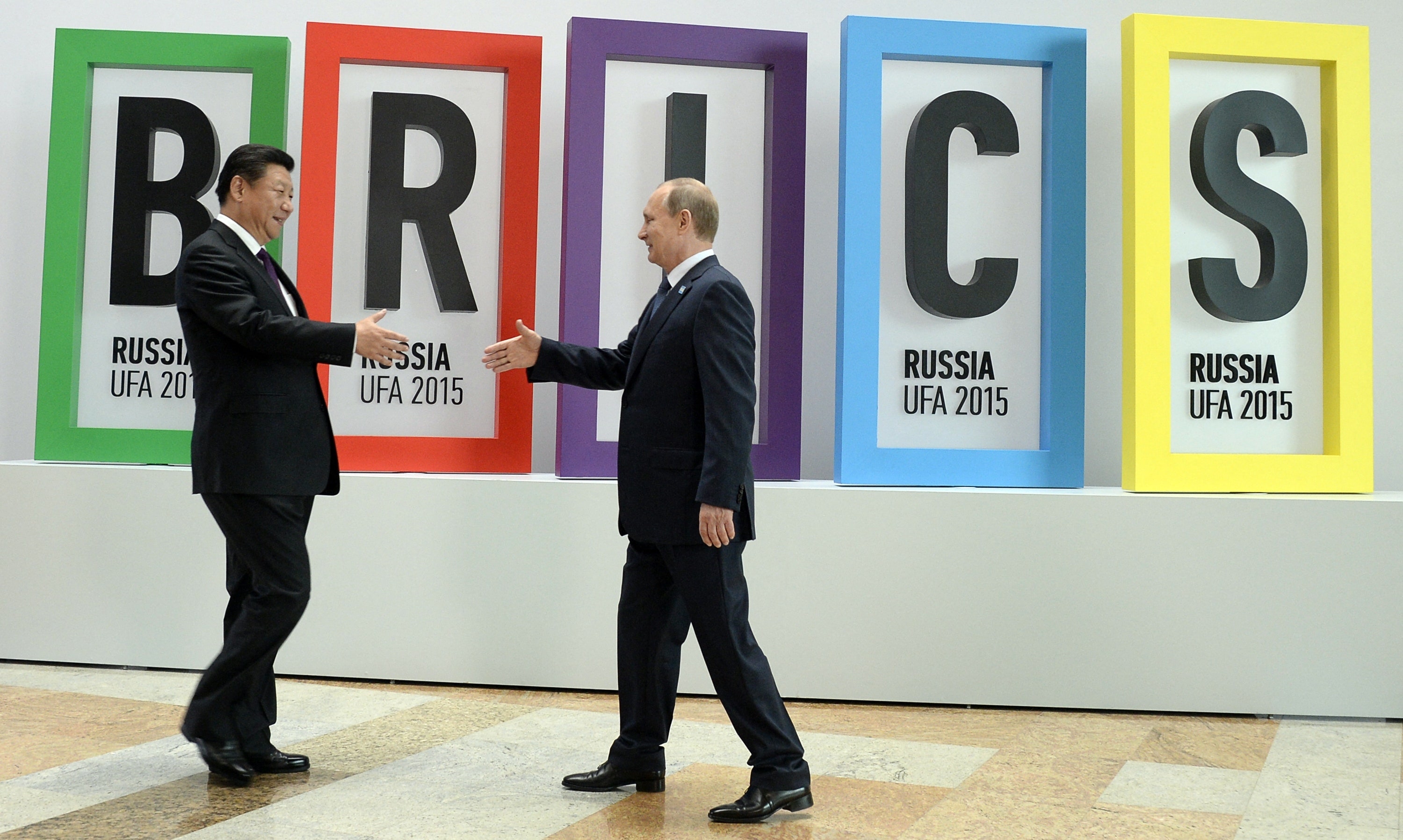Introducing the ability to listen to Fox News articles! The BRICS bloc, comprised of countries led by China and Russia, has a clear objective: to challenge the dominance of the U.S. dollar. South Africa’s ambassador to the group emphasized this point recently, stating that the days of a dollar-centric world are over and that we now have a multipolar global trading system.
The term BRICS was coined in 2001 by Jim O’Neill, a former managing director at Goldman Sachs, to refer to the emerging economies of Brazil, Russia, India, China, and later South Africa. O’Neill predicted that these countries would surpass the G-7 superpowers in the future. The bloc was officially established in 2009 at a summit in Russia, and South Africa became a full member in 2010. Its mandate is to restructure the global political, economic and financial architecture to be more equitable and representative.
The leaders of these nations will meet for their 15th summit from August 22-24, with the notable absence of Russian President Vladimir Putin, who will be represented by Foreign Minister Sergei Lavrov due to an arrest warrant from the International Criminal Court. One of the key topics that will likely be discussed, despite not being officially on the agenda, is the creation of a new international currency. The aim is to establish a joint BRICS monetary unit, similar to the Euro, which would eventually replace the U.S. dollar as the primary currency for international reserves and transactions.
The move towards de-dollarization by non-Western countries has gained significant momentum in recent years. This is largely due to the “weaponization” of the U.S. dollar by the U.S. government through economic sanctions on countries with differing political views. This practice has escalated, particularly after Russia’s invasion of Ukraine in 2014, leading many countries to seek alternatives and reduce their dependence on the dollar. China, a key player in BRICS, sees this trend as an opportunity to challenge the United States’ global dominance.
Over 40 countries have expressed their interest in joining BRICS to reduce currency risk and bypass U.S. sanctions if necessary. These countries range from U.S. foes like Iran to allies like Saudi Arabia, Egypt, Indonesia, and Argentina. This demonstrates a desire to separate business and economics from politics and ideology, challenging the Western norms that have governed global trade and finance since the establishment of the Bretton Woods system in 1944.
The question remains: is this a real threat to U.S. economic hegemony, as Moscow and Beijing want us to believe? The two authoritarian regimes have aligned their interests in challenging U.S. policy, particularly in dethroning the dollar. However, the U.S. dollar still dominates global trade, accounting for 88% of international transactions and 58% of global foreign exchange reserves. The supplanting of the dollar would require much more than just grand ideas and high-level meetings; it would require the establishment of rule of law and credibility, qualities lacking in the leadership of Russia and China.
While it may take decades for the dollar to be replaced, it is important for U.S. policymakers to acknowledge the trend of de-dollarization and not dismiss it as ridiculous. The growth and influence of BRICS cannot be ignored, as it represents a significant economic and geopolitical force in the world. Going forward, it is crucial for the United States to consider the implications of its actions on the global stage and maintain trust and the rule of law, which have been the pillars of the dollar’s status as a global reserve currency.
In conclusion, the BRICS bloc’s ambition to challenge the U.S. dollar is a real concern. While the dollar’s dominance may continue for the foreseeable future, it is imperative for the United States to address the grievances that have led to the rise of de-dollarization and to ensure that its actions align with principles of trust and the rule of law. By doing so, the United States can maintain its position on the global stage and adapt to the changing dynamics of international trade and finance.
Denial of responsibility! VigourTimes is an automatic aggregator of Global media. In each content, the hyperlink to the primary source is specified. All trademarks belong to their rightful owners, and all materials to their authors. For any complaint, please reach us at – [email protected]. We will take necessary action within 24 hours.


